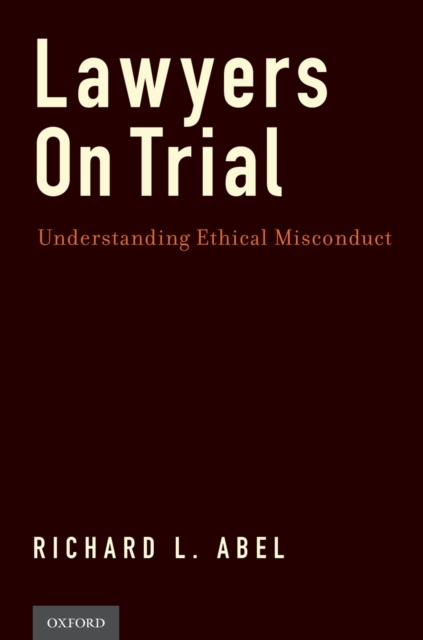
Lawyers on Trial : Understanding Ethical Misconduct PDF
by Richard L. Abel
Description
Lawyer misconduct affects many people: clients, adversaries, opposing counsel, judges, the legal profession, and society at large. The records of disciplinary proceedings offer a penetrating, and largely ignored, perspective on how lawyers misbehave. Because the lawyers' professional lives are at stake, the factual records are extraordinarily detailed and the lawyers surprisingly open about their motivations and justifications. In Lawyers on Trial, Richard L. Abel presents the stories of ten California lawyers who broke the rules: hiring an ex-cop to chase ambulances, flouting fee limitations in medical malpractice cases, creating a fictitious company and impersonating non-existent people in order to appropriate Sega's computer games, a former California Real Estate Commissioner defrauding developers and financiers, helping a represented co-defendant negotiate a plea without his lawyer's participation or knowledge, and defying a judge's sealing order and his own client's wishes for closure in order to champion the "defenseless" and "oppressed" and protect "widows and children." The book begins by showing how nearly a century of political struggle over self-regulation shapes the way the disciplinary system selects and processes cases and concludes by canvassing reforms that could improve the performance of the legal profession. Lawyers on Trial will be invaluable for those contemplating law school, law students and teachers of professional responsibility, continuing legal education classes, lawyers encountering ethical dilemmas in their practice or trying to understand misbehaving colleagues, members of the public thinking of retaining a lawyer, and clients dealing with their own lawyers.
Information
-
Download - Immediately Available
- Format:PDF
- Publisher:Oxford University Press
- Publication Date:17/12/2010
- Category:
- ISBN:9780199826490
Information
-
Download - Immediately Available
- Format:PDF
- Publisher:Oxford University Press
- Publication Date:17/12/2010
- Category:
- ISBN:9780199826490






